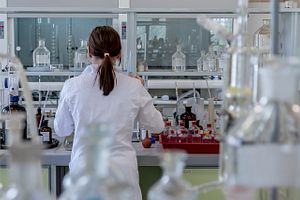This week Kazakhstan signed a deal to secure supplies of a Russian COVID-19 vaccine, named Sputnik V. According to Reuters, under the deal Nur-Sultan will buy 2 million doses initially. The price tag is unknown but Kazakh authorities reportedly said the vaccine would be made available to “at-risk Kazakh citizens” for free.
In July, Kazakh Health Minister Alexei Tsoi mentioned talks with Russia while also noting that “We have a similar preliminary agreement with other vaccine manufacturers who are currently conducting trials: this includes several types of vaccines that China and the UAE are testing, and other vaccines whose clinical trials are close to completion.”
On the domestic development front, a research center in Almaty aims to begin small-scale clinical trials in October of QazCovid, its vaccine candidate.
When it comes to securing access to a COVID-19 vaccine, Kazakhstan, like many states, is pursuing a variety of options to hedge its bets.
Kazakhstan’s deal this week was settled between Russia’s sovereign wealth fund, the Russian Direct Investment Fund (RDIF) and SK-Pharmacy, the Kazakh state pharmaceutical distributor established by the Kazakh government under its sovereign wealth fund, Samruk-Kazyna. RDIF is backing a vaccine developed by the Gamaleya National Research Institute of Epidemiology and Microbiology. The deal, in essence, guarantees Kazakhstan access to a certain amount of vaccine should it successfully complete clinical trials and go into production.
The Russian vaccine, Sputnik V, is named after the world’s first satellite, Sputnik, launched by the Soviet Union in 1957. And just as Sputnik’s launch marked the starting pistol of the Cold War-era space race, Moscow’s claim to have developed the “first registered vaccine against COVID-19” signifies a different kind of race.
While Russia claims its vaccine is safe and effective, it’s important to note that it has not completed large-scale human clinical trials.
Vaccines in development usually progress through at least three phases. Phase I trials include a very small number of people and are aimed at evaluating the potential vaccine for safety and side effects alone. Phase II trials include a larger pool of people, several hundred, and maintain a focus on safety primarily and tailoring the dose of the vaccine. It’s really only in phase III trials, which include tens of thousands of people, that vaccines are evaluated for efficacy — does it actually work? Phase III trials traditionally last from several months to several years. In the current race for a COVID-19 vaccine, timelines are being quickened as much as possible, though not without concerns about sacrificing safety for speed.
In early August, when Russia announced Sputnik V as the “world’s first approved coronavirus vaccine” it also said it was just beginning phase III trials with 2,000 people. Later in August, Russia announced that 40,000 volunteers would take part in the trials. According to Arstechnica, “To date, Sputnik V is only known to have been tested in a total of 76 people in two small clinical trials… The data for those small, early trials are not published in a scientific journal, nor have they been made public.”
Importantly, Russia announced Sputnik V as “approved” but as Jon Cohen wrote for Science, “Russia’s approval of a COVID-19 vaccine is less than meets the press release.” The certificate actually granted for Sputnik V, he points out, “allows the vaccine… to be given to ‘a small number of citizens from vulnerable groups,’ including medical staff and the elderly” and “cannot be used widely until 1 January 2021, presumably after larger clinical trials have been completed.”
Kazakhstan’s deal with Russia secures access to Sputnik V if the vaccine proves effective, which is unlikely any time soon. At present, Kazakhstan has recorded 105,234 cases of COVID-19 and 1,523 deaths.
According to the New York Times, as of August 27 there were 35 vaccine candidates in clinical trials and at least 88 under investigation in animal trials. China and Russia have both granted early approval to vaccines that have not completed phase III trials; in total eight vaccine candidates have entered phase III.

































